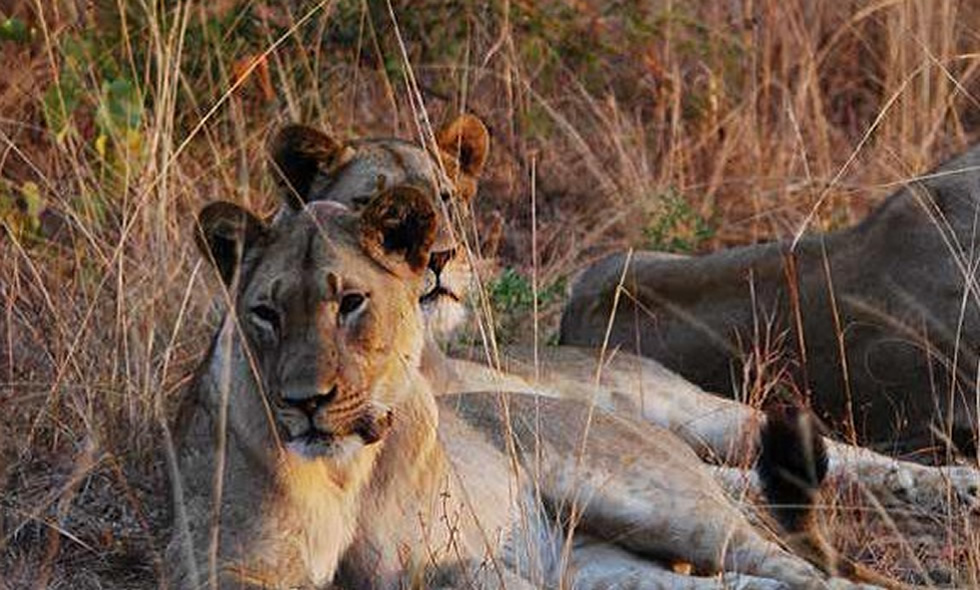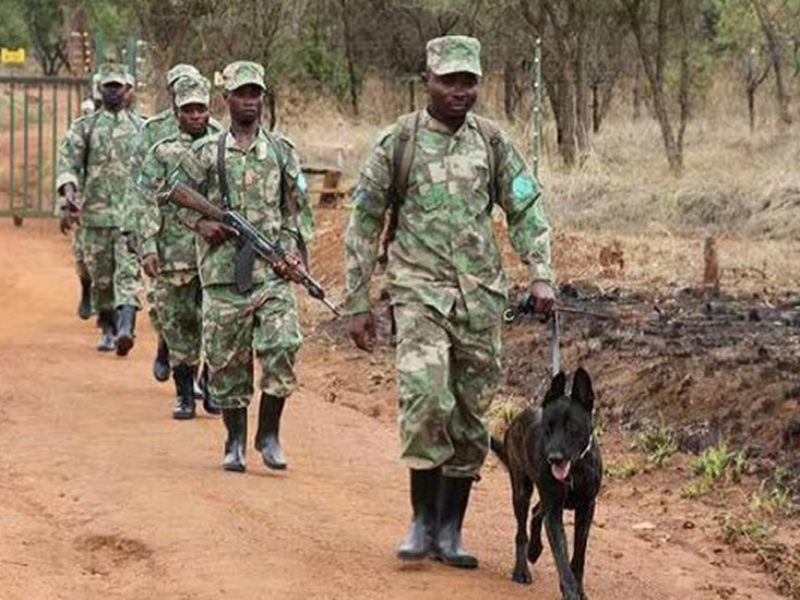
Akagera Lions Settle
After almost a month in the boma in Akagera National Park, seven translocated lions were release from their temporary enclosure on 27th July. These are the first lions to step foot in Akagera, and Rwanda, in over a decade.
The five females came from three different prides; a 10 year old mother and her 18-month old cub, two 3-year old sisters and five-year old single female. They had already spent one month together in quarantine at &Beyond Phinda Private Game Reserve before coming to Rwanda. The males, aged 3 and 4 years old came from Tembe Elephant Park, both parks are in the South African province of KwaZulu Natal. The males met the females for the very first time on arrival in Akagera.
All seven lions were fitted with GPS collars so that their movements could be monitored as they settle into their new home. Intrigue was high on release day; would they leave the boma straight away or stay where it is familiar? Would they stay together as a pride of seven or split up into smaller groups? Their first weeks have been fascinating to follow; encounters with the locals, first successful kills, changing dynamics of the group and the first tourist sightings…
Tempted out by a waterbuck carcass, the females were quick to emerge from their temporary enclosure when the gates opened. They were eager to explore their new home and all five quickly left the boma area traveling west and leaving the males behind. Within days they had encountered a group of 16 hyenas and, feeling outnumbered, they retreated into the western boundary hills. By the end of the first week they had moved over 35kms. They had returned to the lakes and, after several failed attempts, they were finally successful in bringing down a female waterbuck. Adam Bannister was part of the film team following the lions and he observed only one hunt where they really worked together as team. Although they had been together for over two months at this stage, this was the first time they were hunting for themselves as a pride of five, and they had a lot to learn! The lionesses had managed to evade any tourists, despite using the road network to move at night and spending a lot of time just a few metres away from the roads during the day. But then excitement was high a month after the release when the five females were spotted for the first time. Soon after this, the two sisters parted ways with the rest of the group and embarked on their own journey of exploration moving right up to the northernmost tip of the park.
The first weeks for the two males were very different. They have shown more caution than the inquisitive females and for the entire first month they remained on Magashi peninsula, moving not more than 5kms from the site of the boma. The area is roughly 5,000 hectares and surrounded by water on all sides except for a narrow connection to land. Without any roads beyond the boma tourists don’t visit the area and with plenty of game, the reserved males hunted successfully and were content to stay. A month passed before they finally decided to venture from their territory and left Magashi moving west into the Mutumba hills.
Six weeks later, one question still remained; when will they all meet up? Since the males left the boma area they had been crossing paths with both female prides but always days, or several kilometers, apart. Not long after after the males had finally left, the pride of 3 females returned to Magashi and the sisters were at the extreme north of the park. It seemed a rendezvous was far off. However, the males soon returned to familiar territory and one morning we got satellite readings from both the males and the females, less than an hour apart, showing them within a few metres of each other. It was a fitting reunion, on Magashi peninsula where they first met and then parted way six weeks earlier, but far from the end of the story, this is hopefully just the beginning of a new chapter in the story of Rwanda’s Pride.
Follow @AkageraPark on Twitter, Friends of Akagera National Park on Facebook for regular updates.
Sarah Hall sarahH@african-parks.org

